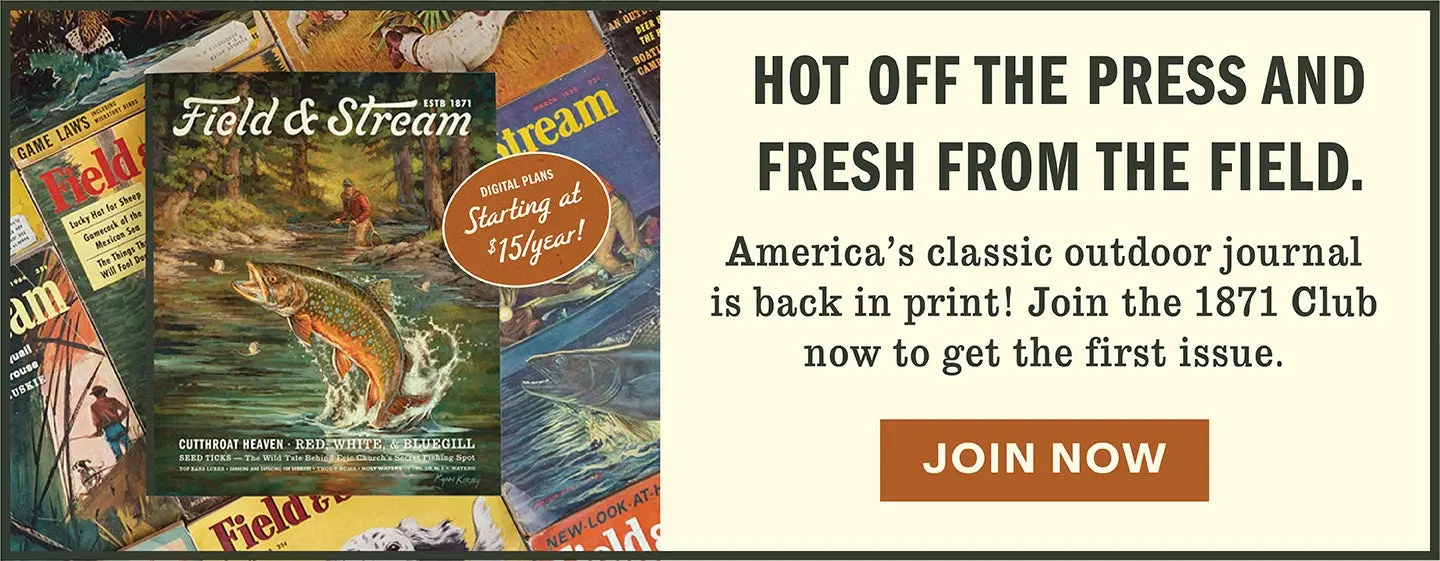The National Park Service has announced that hunters will no longer be allowed to use bait to attract bears on 22 million acres of federally governed National Preserves in Alaska. The ban, scheduled to take effect later this summer, prohibits hunters from using attractants (such as bacon grease, pastries, syrup, dog food, etc.) to attract bears, citing concerns that the practice “encourages bears to become conditioned to human-provided food, increasing the likelihood of negative human-bear interactions,” the NPS said in a statement
.

Learn how to get the all-new Field & Stream journal!
Announced June 28, the decision reinstates a baiting ban for non-subsistence hunters instituted during the Obama administration in 2015. That rule was later overturned by the Trump administration, which required the NPS to follow the same hunting regulations used by the state of Alaska. The prohibition stops a tradition of bear baiting in the state that can be traced back at least several decades, to passage of the Alaska National Interest Lands Conservation Act (ANILCA) by Congress in 1980.
“NPS has allowed black bear baiting on National Preserve lands in Alaska since ANILCA, and there are zero incidents or any problems or complaints we know of,” Mark Richards, executive director of Resident Hunters of Alaska
, told Field & Stream. The hunting advocacy group was one of several that took a strong position opposing the ban, testifying during hearings on the rule change. “There is no valid reason to ban what has been allowed for the past 40+ years,” he added.
Some 200,000 comments were submitted during a public review period, the vast majority in favor of a ban. But baiting—which is still legal under state wildlife regulations on nonfederal land—remains a popular practice with Alaskan hunters, Richards said.
**Related: Ohio House Passes Bill To Ban Hog Hunting in Buckeye State
**
“If you look at the many thousands of comments solicited by the NPS, 99%+ are from people who don’t live in Alaska, and most of those commenting are unaware that hunting is allowed on National Preserve lands in Alaska and oppose any hunting at all on NPS lands. It’s a real disconnect.”
The decision leaves in place other changes instituted in 2015, including the use of dogs to hunt black bears, killing wolf pups during denning season, and the taking of swimming caribou, despite a proposal earlier this year to prohibit many of those practices. The Anchorage Daily News
reported that the park service opted to focus solely on bear baiting for now, “though it may re-evaluate whether regulatory action is necessary in the future.”
The NPS preserves make up about 10 percent of the approximately 222 million acres of land that is federally owned or managed in Alaska, which constitutes roughly two-thirds of the state.

